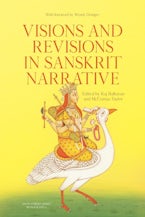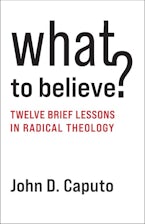
Hinduism
A Contemporary Philosophical Investigation
Series: Investigating Philosophy of Religion
232 Pages
Hinduism is considered a religion without a well-defined structure, and many argue that Indian philosophy is more like religious practice. Through Hinduism: A Contemporary Philosophical Investigation, Shyam Ranganathan successfully attempts to correct this lopsided understanding of Hinduism and Indian philosophy. For Ranganathan, “Hinduism is not characterizable by some basic doctrine or perspective” but is better understood through “inclusive” “disagreement” (vi). One of the major challenges in understanding Hinduism is that it must be essentially approached with both a philosophical and a practical bent of mind. Ranganathan argues that Hinduism’s dependence on practice might be its singular feature. The understanding of the context of any cultural or religious tradition cannot be overemphasized. Ranganathan acknowledges the need for understanding these contexts and basing the study of a religion or philosophy on such knowledge.
Surprisingly candid, Ranganathan takes the bull by the horns and affirms that “European ideas of the holy from European philosophers are routinely treated as secular and philosophical while non-European accounts are religious and sociological even from philosophical sources” (5). The difference is of “race and ethnicity.” This unapologetic acknowledgement of Eurocentric bias is a refreshing departure. Often a tight boundary between religion and secular philosophy is imposed in the context of Eastern religions and philosophies, and this is due to “a profound ignorance of many non-western religions: especially Hinduism” (6).
There are various approaches to doing philosophy. Hinduism and Indian philosophy offer one of the most comprehensive methods, argues Ranganathan. He denounces watertight categories in religion and philosophy and asserts that the West has “alienate[d] philosophy from itself”; it thought that “it could bite off” Hinduism “but could not chew” (11). According to Ranganathan, Hinduism “is philosophy itself” (11). This book is the result of Ranganathan’s study on Indian ethics. He emphasizes that a majority of misunderstandings about Hinduism would be cleared up by knowing that a large number of Hindu tenets are based on dharma (the basis of life or being) or morality.
Hinduism does not have a “right perspective” (42). Ranganathan argues that explication and interpretation of religious texts are not mutually exclusive in Hinduism, and philosophizing gives objectivity to Hinduism. Interestingly, Ranganathan situates bhakti (devotion) as the “fourth moral theory,” preceded by virtue ethics, consequentialism, and deontology (the study of the nature of duty or obligation) (58–65). He dispels the myth that devotion in Hinduism is just idolatry and argues that many Hindus refer to their “consecrated icons . . . as a creator god.” Through an analysis of the mythological story “The Churning of the Milk Ocean,” Ranganathan explains that Hinduism appreciates “the force of third-party perspectives” (81). Ranganathan’s analysis is a fresh approach to understanding the method of Hindu thought. He has given scholars a methodology to understand Hinduism that could be applied to other non-Western religious and philosophical traditions.
Ranganathan explores the differences in the moral perspectives of the Western and Indian traditions and concludes that the difference is that of the external and the internal. He analyzes Hindu thought in its various aspects, such as ethics, logic, knowledge, metaphysics, and politics. Ranganathan deals with the different connotations of the word secularism and brings forth the bias behind different meanings. He argues that the many icons, gods, and goddesses of Hinduism “function as moral abstractions and regulative ideals of practice [and] . . . are indispensable in explaining philosophical disagreement” (131).
One of the striking features of this book is that Ranganathan boldly attempts to clarify various popular misconceptions about Hindu thought and practice. He addresses the way Hindu lore is perceived, and he argues that Hindu thought is representative, as opposed to the linguistic nature of Western thought. Ranganathan believes that representative “Hinduism does not describe what Hindus believe, but it tracks what is objective about Hinduism” (201). Ranganathan invites religious scholars and philosophers to venture “outside of the interpretive resources of the West . . . [and to] responsibly represent . . . [Hinduism through] its philosophical disagreements, which are philosophical disagreements as such” (212).
Hinduism: A Contemporary Philosophical Investigation, written by a philosopher and practitioner, uses critical rigor to present the practice and precept of Hinduism free from the overarching influence of Eurocentric thought. This book is a timely and valuable addition to the corpus of academic scholarship on Hinduism and could be the first step to understanding the diverse context of non-Western religions and philosophies.
Swami Narasimhananda is the secretary of Ramakrishna Mission Sevashrama, Kozhikode, India.
Swami NarasimhanandaDate Of Review:January 29, 2022
Shyam Ranganathan is faculty member of the Department of Philosophy, and a Research Associate at the York Center for Asian Research, York University, Toronto, Canada.











